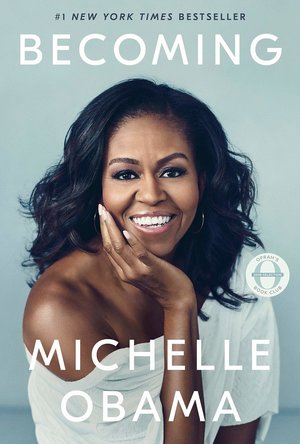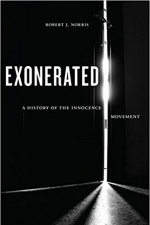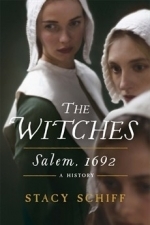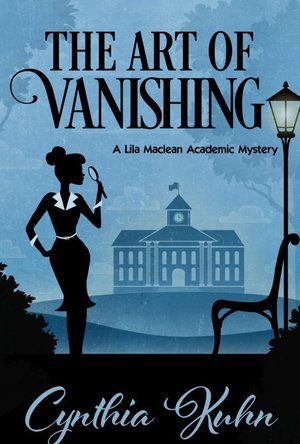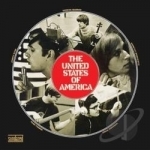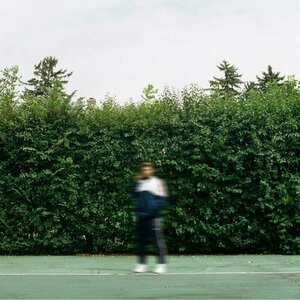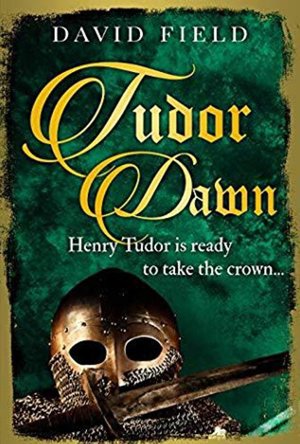Search
Search results
Autumn (3 KP) rated Breaking Beautiful in Books
Jan 19, 2018
this book wasn't what I was expecting. most YA novels aren't when I think about it. anyway, this was wonderful. I think of it as a story of a girl discovering who she is and what she needs.
thankfully I have about zero experience and only academic knowledge about abusive relationships. therefore my only complaint was that there was no explanation in how Allie got into this destructive relationship. from a moralistic standpoint this is probably one of the worst books to give a teenager in an abusive relationship. it demonstrates no means of prevention or plausible solutions of extracting oneself from such a situation. apparently your only means of escape are 1. getting the shit beat out of you until your partner thinks you're dead or 2. your partner dies. not terribly plausible.
points for self-actualization and having a character with CP; big WTF for not helping anyone.
thankfully I have about zero experience and only academic knowledge about abusive relationships. therefore my only complaint was that there was no explanation in how Allie got into this destructive relationship. from a moralistic standpoint this is probably one of the worst books to give a teenager in an abusive relationship. it demonstrates no means of prevention or plausible solutions of extracting oneself from such a situation. apparently your only means of escape are 1. getting the shit beat out of you until your partner thinks you're dead or 2. your partner dies. not terribly plausible.
points for self-actualization and having a character with CP; big WTF for not helping anyone.
Mark @ Carstairs Considers (2072 KP) rated Twelve Angry Librarians (Cat in the Stacks, #8) in Books
Mar 9, 2018
Athena College is playing host to the Southern Academic Libraries Association convention and Charlie Harris’s old grad school classmate Gavin Fong is giving the keynote address. Charlie doesn’t have fond memories of Gavin, and an encounter opening night proves that Gavin is still as arrogant as ever. But when Gavin collapses and dies in the middle of his speech, Charlie is surprised. Yes, Gavin was a jerk, but who hated him enough to kill him?
As always, this is a strong mystery, with conflict and tension set up from the very first chapter. We have several strong motives and suspects before Gavin dies, and we get some nice twists before the logical solution. The suspects are all believable, and the returning characters continue to be strong. Charlie’s cat Diesel charms like always as well.
NOTE: I received a copy of this book.
Read my full review at <a href="http://carstairsconsiders.blogspot.com/2017/02/book-review-twelve-angry-librarians-by.html">Carstairs Considers</a>.
As always, this is a strong mystery, with conflict and tension set up from the very first chapter. We have several strong motives and suspects before Gavin dies, and we get some nice twists before the logical solution. The suspects are all believable, and the returning characters continue to be strong. Charlie’s cat Diesel charms like always as well.
NOTE: I received a copy of this book.
Read my full review at <a href="http://carstairsconsiders.blogspot.com/2017/02/book-review-twelve-angry-librarians-by.html">Carstairs Considers</a>.
Non-fiction isn't usually my 'cup of tea', so I started this with an element of trepidation. I needn't have worried. It's like listening to a more experienced friend telling you what they've done with their life (it would be a long chat, obviously).
From Michelle Obama's poor start in life, via her mother and father's interventions (actually, more her mother's) in her education and the sacrifices they made to give her the best education they could afford, to meeting Barack, getting married, having children, supporting his political life, all the while working herself. And she enjoyed her work. She's a strong woman. She gives an insight to the difficulties for black men and women in daily life, at academic institutions, and in work - especially those which are white dominated (which appears to be the majority).
She just comes across as an extremely likeable person. It was a fascinating book, and I really enjoyed it.
From Michelle Obama's poor start in life, via her mother and father's interventions (actually, more her mother's) in her education and the sacrifices they made to give her the best education they could afford, to meeting Barack, getting married, having children, supporting his political life, all the while working herself. And she enjoyed her work. She's a strong woman. She gives an insight to the difficulties for black men and women in daily life, at academic institutions, and in work - especially those which are white dominated (which appears to be the majority).
She just comes across as an extremely likeable person. It was a fascinating book, and I really enjoyed it.
Rachel (48 KP) rated Exonerated: A History of the Innocence Movement in Books
May 25, 2017
Such a Disappointment
I had very high hopes for this book, it is a fascinating subject, but sadly it did not live up to expectations at all.
Halfway through the introduction I realised just how dry it was going to be. I recognised the structure of it from my university essays. When an introduction includes a brief synopsis of the chapters to come it is obviously good to be more of an academic study than a book you can sit down and get lost in!
And so it continued. Far too much time is dedicated to very dry details. For example, 10 pages are dedicated to a conference held in 1998 called The National Conference on Wrongful Convictions and the Death Penalty. Obviously this is an extremely important cause but it could either have been explained in 2 - 3 pages maximum or a lot more details about the exoneree's could have been added. This is actually the problem through out the book. Details of the exoneration's are sparse, usually with as little detail as "he was exonerated by DNA".
When the author, rarely, tells the story of someone he really comes to life. He has a voice that can put across the suffering and circustance of a person in a very warm and interesting way. Had there been more of that writing it could have been a spectacular book.
As the book was about the Innocence Movement itself I was not expecting some true crime book but, had the dates and figures been interspersed with case studies it would have been great. It would have been nice to know exactly how someone was wrongfully imprisoned and how they were exonerated. Had this been the case I would have given a much higher rating.
The author himself calls this work a study. Unless this book is to be marketed solely for academic purposes, which I am sure it isn't, then it should not BE a study. It should be an accessible book for all people interested in the subject to enjoy.
The author is obviously very passionate about this subject - hence 2 stars instead of 1 - yet passion alone does not make a book good.
Halfway through the introduction I realised just how dry it was going to be. I recognised the structure of it from my university essays. When an introduction includes a brief synopsis of the chapters to come it is obviously good to be more of an academic study than a book you can sit down and get lost in!
And so it continued. Far too much time is dedicated to very dry details. For example, 10 pages are dedicated to a conference held in 1998 called The National Conference on Wrongful Convictions and the Death Penalty. Obviously this is an extremely important cause but it could either have been explained in 2 - 3 pages maximum or a lot more details about the exoneree's could have been added. This is actually the problem through out the book. Details of the exoneration's are sparse, usually with as little detail as "he was exonerated by DNA".
When the author, rarely, tells the story of someone he really comes to life. He has a voice that can put across the suffering and circustance of a person in a very warm and interesting way. Had there been more of that writing it could have been a spectacular book.
As the book was about the Innocence Movement itself I was not expecting some true crime book but, had the dates and figures been interspersed with case studies it would have been great. It would have been nice to know exactly how someone was wrongfully imprisoned and how they were exonerated. Had this been the case I would have given a much higher rating.
The author himself calls this work a study. Unless this book is to be marketed solely for academic purposes, which I am sure it isn't, then it should not BE a study. It should be an accessible book for all people interested in the subject to enjoy.
The author is obviously very passionate about this subject - hence 2 stars instead of 1 - yet passion alone does not make a book good.
Hannah (22 KP) rated The Witches: Salem, 1692 in Books
Sep 12, 2017
No map of the village (1 more)
The footnotes, so many footnotes
Some interesting points made, but...
Narrative history that sometimes misses deeper analysis of why it happened. It seems well researched, using the accounts of the period. I don't generally have an issue with footnotes, but I think the author overuses them sometimes, and many of the footnotes could be incorporated into the text or dropped entirely as they sometimes go off at a tanget. Not always a fan of her writing, it's quite wandering and tries to mix an accesible history style with more of an academic writing style. It doesn't really give the reader a great sense of the period atmosphere and concentrates very heavily on what happened at the trials. She was apparently deliberately avoiding explainations, however she attempts to explain the instigators' "hysteria" that originally prompted the accusations of witchcraft; that the symptoms occured in the parsonage, the most repressive environment. The accusations gained the "victims" attention and a respite from chores. I was surprised that there was no map of the village.
Mark @ Carstairs Considers (2072 KP) rated The Art of Vanishing in Books
May 4, 2018
Someone is Out to Destroy Arts Week
Every spring semester, Stonedale University puts on an arts festival, and Lila has been roped into serving on the committee. The big name for the week is author Damon Von Tussel, who has just released his second book decades after his critically acclaimed debut. Lila is sent to interview him before the big event to gain some publicity, but before she can talk to him, he disappears. Then everyone on the committee starts to get threatening e-mails. What is going on?
I don’t read too many mysteries set in the academic world, so I enjoyed changing that with this book. The internal politics of the college and Lila’s worries since this is her first-year teaching there overshadowed the mystery at times. The mystery itself is a little different than many of the books I read, and I found it a refreshing break. The characters are fun, especially Lila’s mother, and I am curious how some of these relationships will develop in the future.
I don’t read too many mysteries set in the academic world, so I enjoyed changing that with this book. The internal politics of the college and Lila’s worries since this is her first-year teaching there overshadowed the mystery at times. The mystery itself is a little different than many of the books I read, and I found it a refreshing break. The characters are fun, especially Lila’s mother, and I am curious how some of these relationships will develop in the future.
Pete Fowler recommended United States of America by The United States of America in Music (curated)
Pete Fowler recommended Silver Apples by Silver Apples in Music (curated)
Sassy Brit (97 KP) rated Building and Dwelling: Ethics for the City in Books
Jun 5, 2019
In Building and Dwelling: Ethics for the City, Richard Sennett explains what it takes to build a good life through a good environment for individuals and society as a whole, worldwide.
Make no mistake, this is an academic text book and written for students in the same field, so although I personally found it interesting, it was not what I expected and it was quite wordy. However, if this is to be your field of expertise then that’s not going to deter you. In fact this may actually be on your reading list.
Sennett covers subjects such as the ethics of co-creation in cities and how the geography, along with economics, has a sociological effect on city-dwelling on a global level.
Well researched, and for the layman like me it’s full of interesting thought provoking ideas at how we can build and live in our cities of the future.
I’ll admit, I don’t necessarily agree with everything Sennett says, but nevertheless he does what I am sure he set out to do, which was to get me thinking. So for any academics out there reading this, you should get heaps of challenging ideas regarding urban development from what is essentially a student text book.
Make no mistake, this is an academic text book and written for students in the same field, so although I personally found it interesting, it was not what I expected and it was quite wordy. However, if this is to be your field of expertise then that’s not going to deter you. In fact this may actually be on your reading list.
Sennett covers subjects such as the ethics of co-creation in cities and how the geography, along with economics, has a sociological effect on city-dwelling on a global level.
Well researched, and for the layman like me it’s full of interesting thought provoking ideas at how we can build and live in our cities of the future.
I’ll admit, I don’t necessarily agree with everything Sennett says, but nevertheless he does what I am sure he set out to do, which was to get me thinking. So for any academics out there reading this, you should get heaps of challenging ideas regarding urban development from what is essentially a student text book.
ClareR (5577 KP) rated Tudor Dawn: Henry Tudor is ready to take the crown (The Tudor Series Book 1) in Books
Jul 2, 2019
A really interesting history!
I really liked this - I’ve not read much about Henry Tudor, and everyone is always much more interested in Henry VIII and his promiscuous love life! Henry Tudor isn’t like his son at all. He may well have enjoyed the company of women, but David Field doesn’t play on that fact. I learnt so much about the history of Henry’s upbringing and subsequent escape into exile - and it is a vey male dominated book. We don’t see much of what his mother would have been doing, but we do learn about her hard work on his behalf.
I hadn’t realised that he’d been such a sickly child and that some of these problems followed him in to adulthood, or that he actually seemed to love his queen (although that may well be fictionalised - but I’d like to know!). This first book in the series takes up to Henry VII’s death. I think I will be reading the next in the series.
What I really liked about this book was that it’s more history than fiction. It’s not dry, academic type history though, and that’s what really drew me in.
Many thanks to Sapere Books for my copy of this book to read and honestly review. I really enjoyed it.
I hadn’t realised that he’d been such a sickly child and that some of these problems followed him in to adulthood, or that he actually seemed to love his queen (although that may well be fictionalised - but I’d like to know!). This first book in the series takes up to Henry VII’s death. I think I will be reading the next in the series.
What I really liked about this book was that it’s more history than fiction. It’s not dry, academic type history though, and that’s what really drew me in.
Many thanks to Sapere Books for my copy of this book to read and honestly review. I really enjoyed it.

